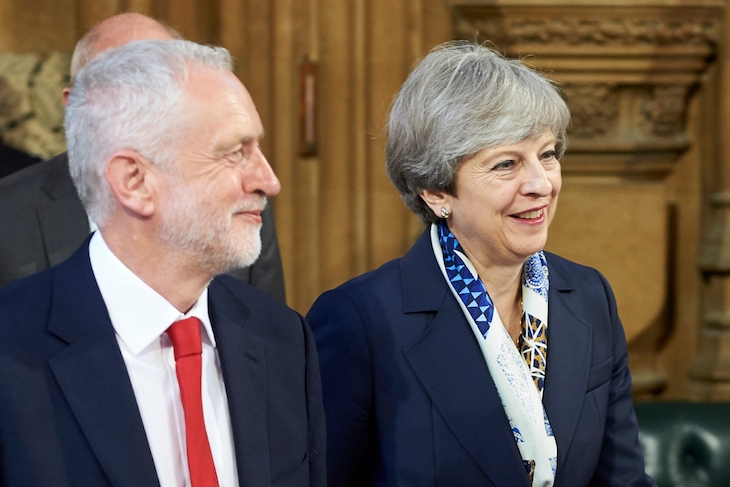Theresa May has two weeks to sell her deal to MPs ahead of the meaningful vote on Tuesday 11 December. The fact that Philip Hammond used an interview this morning meant for selling the deal to state that at present there was no consensus in favour of it tells you everything you need to know about how that is going. There are gloomy estimates that the government could lose the vote by as much as 200 – that seems steep but a defeat around the 100 mark is beginning to seem likely.
So, how does No.10 plan to turn things around? There’s a special Brexit grid which will see a topic focus for each day – economy, security, trade – in the build up. Perhaps the most striking part of the Downing Street campaign is the mooted TV debate. No.10 is keen to pit Theresa May against Jeremy Corbyn in a two-person debate on the EU withdrawal agreement (as James first revealed in his Sun column over the weekend). That looks like it will now go ahead – but it could be accompanied by rival debates. Both Nicola Sturgeon and Boris Johnson have complained that there are more than just two viewpoints on Brexit and so a traditional Labour vs Tories debate doesn’t fit the bill as it would in an election.
But this is exactly No.10’s point. May’s team want to make this issue partisan so that they can try and rally Tory MPs to back it. By turning the situation into to a May vs Corbyn affair, the hope is that thos Tories watching will realise that any decision that makes them go into the same division lobby as Corbyn on the issue is a bad one. Even if MPs don’t change their minds, there’s a chance that constituency chairmen will see if and put their local MP under pressure to back May. All the polling so far suggests that there is a public sympathy for May – even if little enthusiasm for her deal.
Will it work or is it pointless? As the New Statesman‘s Stephen Bush points out on Coffee House Shots, it seems a slightly odd strategy given that Theresa May will also need Labour votes to get her deal through. Making it about party politics only makes it harder for Labour MPs to vote against their leader’s instructions. However, given the desperate situation May finds herself in, the priority is to try all routes possible to get this rebellion down even if some are contradictory.







Comments